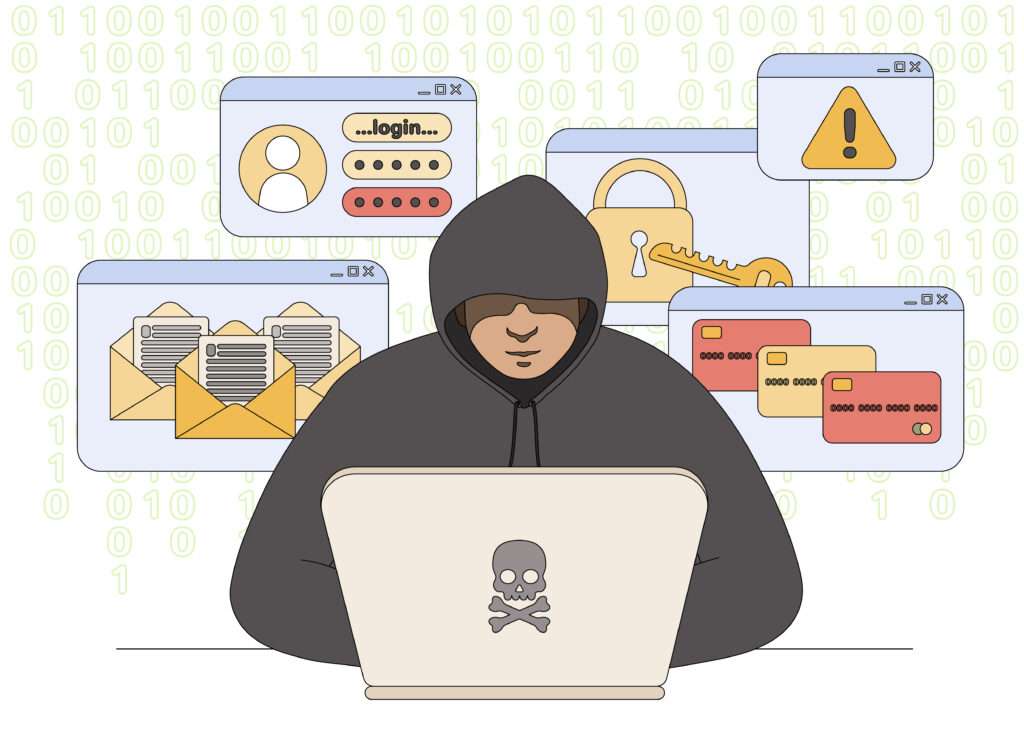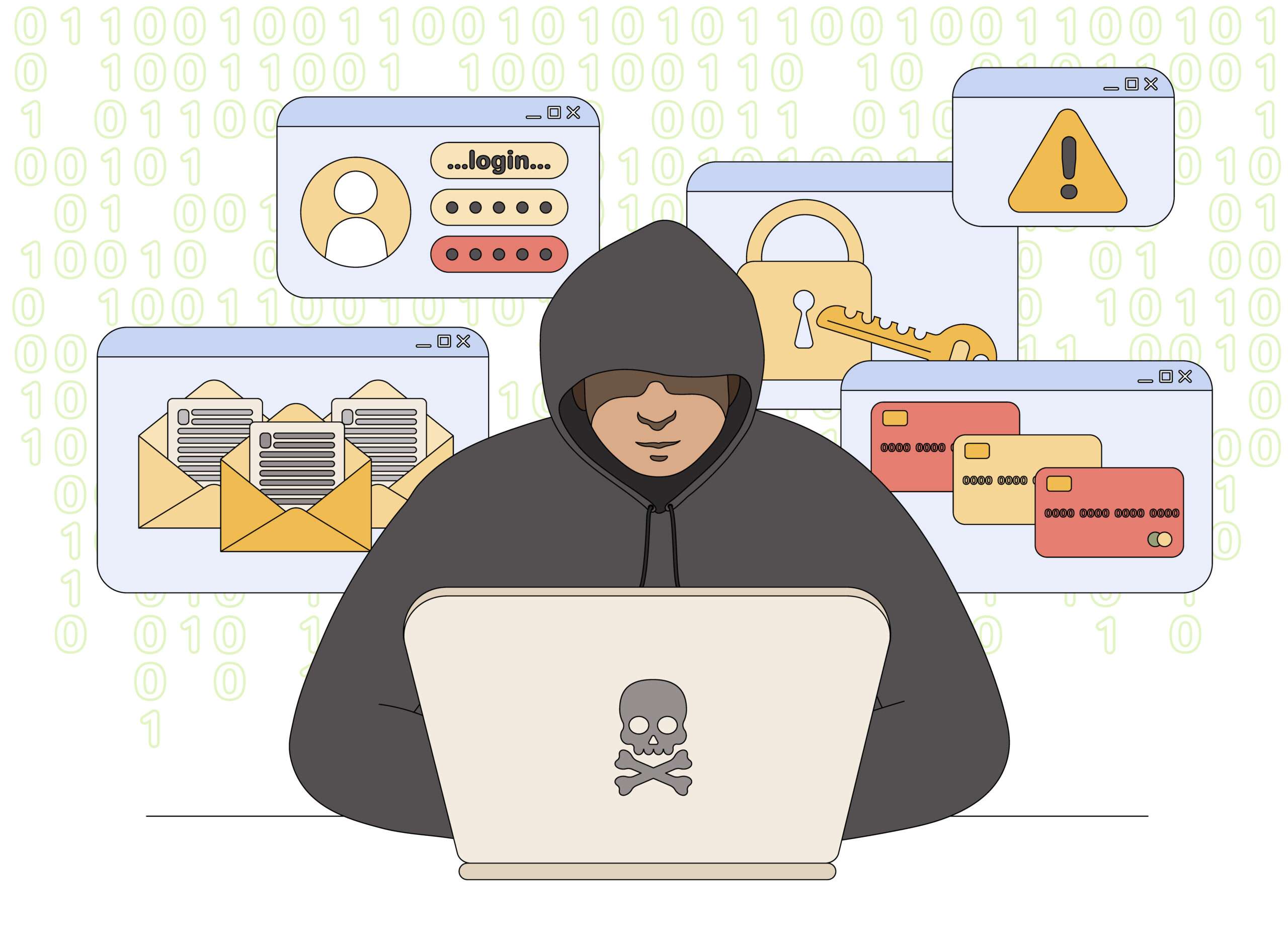Have you received a suspicious voicemail from 01772460968 claiming to be from your bank’s security department? If so, you may be the target of an elaborate phone scam aimed at stealing your personal and financial information. This article will provide an in-depth overview of how the 01772460968 security department scam works, what to do if you’ve fallen victim, and most importantly, how to protect yourself from this and similar phishing attempts.

Overview of the 01772460968 Scam
The 01772460968 scam starts with an automated voicemail message claiming to be from your bank’s security or fraud department. The pre-recorded message states that suspicious charges or payments from Amazon overseas have been detected on your account.
You are then prompted to press 1 to authorize these transactions or 2 to speak with a customer service agent. Of course, no unauthorized transactions actually exist. The scammers are fabricating this story in hopes you will press 2 to dispute the fake charges. Their goal is to get you on the phone with one of their criminal call center operators.
Once connected with the “agent,” an elaborate social engineering scheme begins. The fraudsters posing as security personnel will request personal information and account credentials to “verify your identity.” With access to this sensitive information, the scammers can pilfer your account and steal your hard-earned money.
Scam Tactics of 01772460968 Voicemail
The 01772460968 voicemail message is carefully crafted to cause panic and make the recipient believe they must call back immediately to avoid financial loss. Here are some of the tactics used in the scam voicemail:
- Spoofed Caller ID: The criminals mask the incoming call to make it appear the voicemail is from your legitimate bank’s phone number.
- Time Sensitivity: The message urges you to call back “immediately” to avoid account suspension or other problems. This creates a false sense of urgency.
- Threat of Frozen Account: The voicemail may claim that your account will be frozen or suspended unless you press 2 to speak with an agent right away.
- Fake Transactions: Mentioning unauthorized Amazon purchases from overseas makes the issue sound credible and alarming. Most people do occasionally buy from Amazon.
- Request for Authorization: Prompting recipients to “press 1” to authorize the fake transactions further disguises the scheme as a legitimate call from your financial institution.
- Elaborate Backstory: The detailed cover story about unauthorized Amazon charges originating overseas helps persuade distressed recipients that the call is real.
Together, these tactics capitalize on fear, confusion, and a perceived need for immediate action. Unsuspecting consumers press 2 believing they are stopping fraudulent activity, when in reality they are walking right into the scammers’ trap.
How the 01772460968 Scam Works
Now that you understand the deceptive voicemail, let’s break down step-by-step how the 01772460968 con artists carry out their cruel scheme:
1. Victims Receive a Voicemail
The scam starts with an automated voicemail message delivered to the victim’s mobile phone or landline. The Caller ID is spoofed to match the recipient’s real bank. This makes the call appear credible.
The voicemail claims to be security personnel from the victim’s bank. It explains that unknown charges from Amazon overseas have hit their account, and that the account will be frozen unless the charges are authorized.
Of course, none of this is true. But it sounds believable and alarming, setting the bait for the next phase of the scam.
2. Recipients Call Back to Dispute Charges
Worried about unauthorized transactions and an account freeze, most recipients will call back right away to dispute the charges mentioned in the voicemail.
When calling back, victims reach what appears to be the legitimate customer service number for their bank. In reality, it is a fake number set up by scammers that reroutes to their criminal call center.
3. Call Center Scammers Act as Bank Security
Upon calling back, victims speak with someone claiming to be from their bank’s security or fraud resolution department. This is actually just a con artist intent on stealing personal information.
The fraudster “agent” will say they’ve been reviewing the unauthorized overseas transactions, apologize for the account freeze, and promise to resolve the issue if the victim cooperates fully.
4. Victims are Asked to Verify Personal Information
To appear helpful and credible, the call center scammer will explain that they first need to verify the victim’s identity and details about their account.
The thief will ask for sensitive information like:
- Full name
- Date of birth
- Social security number
- Full account number
- Online banking credentials
- PIN number
- Security question answers
Victims are more apt to comply since the scammer is posing as security personnel trying to help stop fraudulent activity. Unfortunately, this reveals everything a criminal needs to drain the victim’s account and steal their identity.
5. Criminals Use Information for Financial Fraud
Armed with the victim’s personal and financial details, the ruthless scammers move quickly to raid their bank account and make unauthorized transactions.
They may transfer funds, withdraw cash, or make large purchases with the stolen account. New credit cards or loans may be opened in the victim’s name as well.
Within hours, the victim’s account can be emptied and their credit trashed. Meanwhile, the fake call center operation shuts down and the criminals disappear with the money, leaving victims with empty accounts and no way to recover lost funds.
What to Do If You’re a Victim of the 01772460968 Scam
If you fell for the 01772460968 security department scam, stay calm but act quickly. Here are the key steps to take in attempting to recover losses and protect yourself from further harm:
Step 1: Immediately Contact Your Bank
Your first call should be to your real bank using the legitimate number on your bank statements or website.
Alert them that you released personal information and believe your account was compromised. Your bank may be able to freeze the account to prevent withdrawals or further damage.
Ask to speak with the fraud resolution department for assistance disputing any unauthorized transactions. Provide details on what information the scammers obtained and how to help protect you from identity theft.
Step 2: Change Online Banking Credentials
Even if your bank freezes your account, the criminals have your online banking username and password. Log in and change your credentials immediately to prevent access to your accounts.
Be sure to use a new password that is unique, complex, and difficult to crack. Enable two-factor authentication for an extra layer of account security as well.
Step 3: Place Fraud Alerts
Contact the major credit bureaus to place fraud alerts on your credit reports. This makes it harder for identity thieves to open new lines of credit in your name.
The credit bureaus to alert are Equifax, Experian, and TransUnion. Also monitor your reports closely for any signs of new fraudulent accounts.
Step 4: Reset Security Questions and PINs
Since the scammers know personal information like your security questions and PIN, take steps to reset these with your financial institutions.
Update security question answers to be purposefully vague and random so thieves cannot guess them. Never use information that is easily found or guessed.
Step 5: File Police and FTC Reports
File reports about the fraud, theft, and scam with local law enforcement and the Federal Trade Commission (FTC). These reports help in disputing unauthorized charges with banks.
The more fraud reports filed, the more likely authorities can catch and stop the criminal call center operation.
Step 6: Monitor Accounts Closely
Carefully monitor bank and credit card statements for any signs of fraud or identity theft. Report unauthorized charges immediately to your bank’s fraud department.
Be extra vigilant for any suspicious activity for the next 12-24 months in case identity thieves retain some personal information.
Avoiding Security Department Scams: How to Protect Yourself
While you can take steps to recover if scammed, your best defense is avoiding these traps in the first place. Here are smart tips to protect yourself from the 01772460968 con and other “security department” scams:
Be Wary of Unsolicited Calls and Voicemails
One of the red flags with this scam is receiving an unprompted voicemail about a serious issue from your bank. Real banks generally only call customers regarding active issues you’ve reported.
If you receive an alarming voicemail supposedly from your bank’s security team, but didn’t report an issue yourself, be suspicious. Don’t call back or “press 1” without first verifying it’s legitimate.
Confirm the Issue by Calling Your Bank Directly
Should you receive any concerning call or voicemail from someone claiming to be your bank, avoid pressing buttons or calling numbers left in the message.
Instead, call your bank directly using the number on your statement or website. Ask security personnel if they left the voicemail and are aware of the issue described. If not, it’s clearly a scam attempt.
Never Provide Sensitive Information Over the Phone
Reputable banks will never call out of the blue requesting your full account number, social security number, online banking passwords, or other sensitive data. Refuse to provide this info if requested over the phone.
Use Contact Info from Statements Only
Only call phone numbers or use website addresses listed directly on your printed account statements or the official website. Scammers often spoof real bank numbers to appear credible.
Enable Account Alerts
Set up transaction alerts with your bank to be notified anytime money is withdrawn or transferred from your account. This way unauthorized transactions trigger immediate notification so you can report fraud ASAP.
Consult Bank Immediately About Real Issues
If you do spot legitimate unauthorized charges from Amazon or elsewhere on your statement, consult your real bank right away to dispute them. Don’t wait for a voicemail or call. Report real suspicious account activity to your bank fast.
Frequently Asked Questions About the 01772460968 Scam
Consumers targeted by the 01772460968 security department phone scam often have similar questions about how it works and what to do if you’ve fallen victim. This comprehensive FAQ covers the key questions anyone should ask to better understand this fraudulent operation.
What Exactly is the 01772460968 Scam?
The 01772460968 scam is a phone-based phishing attack where scammers leave an urgent voicemail claiming to be from your bank’s security department. The message states unauthorized overseas transactions were detected on your account, prompts you to press 1 to authorize charges, and provides a call back number. It’s a fraudulent attempt to obtain your personal information.
Who is Behind the 01772460968 Scam Calls?
01772460968 is used by off-shore criminal call centers in India and other countries running phone scams. The scammers use spoofing technology to mask the originating number. When targets call back the provided number, they are connected with criminals posing as their bank.
How Do Scammers Get My Phone Number?
Numbers used in this scam are often randomly dialed. However, scammers also steal and sell consumer phone numbers on the dark web. Email and security breaches also provide data like names, numbers, and banks victims use.
What Information Do the Scammers Want?
If you call back and speak with a criminal agent, they will pose as security personnel and ask for sensitive information to “verify your identity.” This includes account numbers, social security numbers, birth dates, passwords, security question answers, and more.
What Do Scammers Do With My Information?
Armed with account credentials and personal data, scammers can drain your bank account, make unauthorized transactions, open credit cards, take out loans, and steal your identity – all under your name. Victims often have accounts emptied within hours.
How Can I Tell if a Call is the Real Bank or Scam?
Never take urgent calls at face value. Verify the issue directly by calling your bank’s legitimate number to speak with real security staff. Your bank will never call and request sensitive data like passwords or PINs.
What Should I Do If I Already Provided Information?
If you shared any data, immediately call your bank’s real fraud department. Alert them of the breach, verify recent transactions, change online banking credentials, request increased account security, and monitor closely for fraud.
Can I Get My Money Back if Scammed?
If the scammers drain your account, contact your bank right away and report all unauthorized transactions. Dispute them as fraud. Under federal law, consumers have protections for fraudulent transfers, but prompt action is key for recovering losses.
How Can I Avoid Falling Victim to This Scam?
Hang up on any unsolicited calls requesting immediate action or personal/financial details. Only call back using official numbers from your bank statements or website to verify legitimacy first. Never provide sensitive info over the phone.
Are There Other Similar Security Scams I Should Watch For?
Yes, variations of the security department scam use other tactics like threatening account suspension, claiming a lost debit card was found, requiring a fake temporary authorization code, and more. Always verify urgency claims directly through your bank.
The Bottom Line: Don’t Fall for the 01772460968 Scam
In summary, the 01772460968 “security department” scam is an elaborate ruse designed to fool worried bank customers into surrendering account access and enabling financial fraud.
If you receive a voicemail from 01772460968 referencing Amazon transactions, ignore the urgent pleas for action. Do not press buttons or call back numbers provided. The calls are from criminal imposters intent on stealing your savings and ruining your finances.
To avoid becoming a victim, be vigilant against unsolicited calls and voicemails. Verify the issue directly with your bank using legitimate contact information before providing any personal or financial details. With awareness of the clever tactics used in this scam, you can keep your account safe and avoid potentially disastrous losses.




